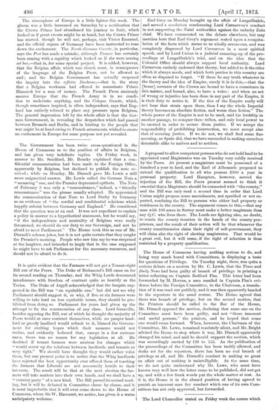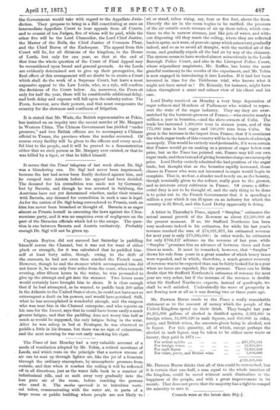The Lord Chancellor stated on Friday week the course which
the Government would take with regard to the Appellate Juris- diction. They propose to bring in a Bill constituting at once an intermediate Appellate Court to hear appeals from all Courts, and to consist of ten Judges, five of whom will be paid, while the other five will be the Lord Chancellor, the Lord Chief Justice, the Master of the Rolls, the Chief Justice of Common Pleas, and the Chief Baron of the Exchequer. The appeal from this Court will lie, for all divisions of the kingdom, to the House of Lords, but only for one year, so that at the end of that time the whole question of the Court of Final Appeal may be reconsidered upon broad and general grounds. As the Lords are evidently determined not to give up their prerogative, the final effect of this arrangement will no doubt be to ereate a Court which shall do the work of a Supreme Court, but leave a most expensive appeal to the Law Lords, who, as a rule, will confirm the decisions of the Court below. As, moreover, the Peers sit only for half the year, there will be considerable additional delay, and both delay and expense will fall upon the unlucky suitor. The Peers, however, save their powers, and that must compensate the eountry for the slowness and costliness of litigation.



































 Previous page
Previous page